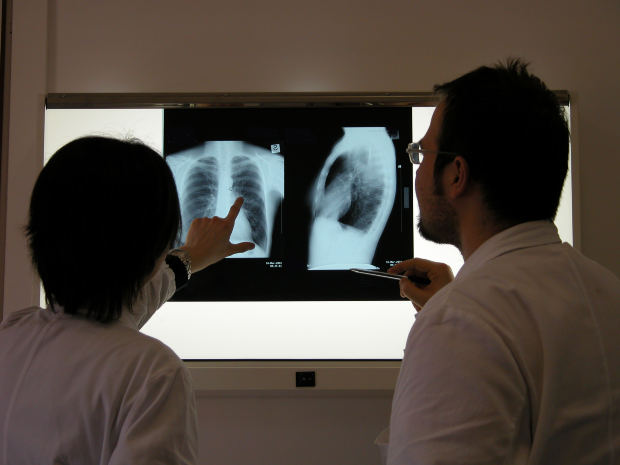*This is a guest post.
Public health issues require many different professionals who can medically treat patients while educating the public about health issues related to the human body. One sort of professional is the respiratory therapist. A respiratory therapist is a health professional that can help patients with various respiratory issues. At the same time, the therapist acts as an advocate for more public health awareness on the health and social impact of respiratory diseases and conditions.
Respiratory therapists are not doctors, but they are clinical professionals who need to be certified to treat patients. Indeed, most respiratory therapist schools require applicants to hold an associate's degree in respiratory care or therapy and be a Certified Respiratory Therapist (CRT). Professionally, however, a CRT can gain more responsibilities and public health duties when they are able to attain a bachelor's degree in respiratory therapy.
The bachelor's degree programs in respiratory therapy consists of a curriculum focused on enhancing a student's leadership skills and clinical experience. The curriculum includes numerous issues, such as medical ethics, community health problems, patient education, and care-giving for patients, particularly the elderly. Since most bachelor's programs are open to applicants who hold their associate's degree, a typical program will last about 2-academic years.
If one is hesitant to make an investment in a bachelor's degree due to cost or time, many universities and colleges are trying to meet the demand of a student's everyday life with online options. An online bachelor's degree in respiratory care will provide the same academic content and courses as an on-site respiratory program. Students will be able to access course content and modules on websites dedicated to their courses. Professors will maintain and monitor the websites so students can freely discuss course content with other students. Most assignments will be written assignments, allowing students to submit written work on the websites and be graded by the professor. In addition, all students will have the ability to contact their professors via email or call the professors during their regular office hours that they hold on campus.
A benefit to an online degree is that these programs cater to the working adult. Since applicants are often CRTs, they will most likely be working full-time in their respiratory care facilities. Add in life responsibilities, such as to family, and school work seems impossible with conventional on-campus courses. An online degree program conforms to a working professional's lifestyle, allowing students to conduct their work when they can.
Online degrees in respiratory care provide new professional opportunities to working adults in the respiratory therapy field. By allowing these professionals a chance to enroll in a bachelor's program online, they are able to enhance themselves professionally and provide their needed skills and insights to the public health issues of respiratory care.
